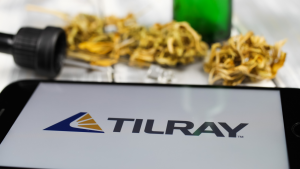
With the federal government moving to reschedule cannabis to Schedule III, effectively paving the way for medical cannabis legalization, cannabis stocks are in the spotlight. Cannabis stocks initially spiked on the news but quickly returned to previous levels. This tempered response reflects concerns about the potential disruption a medical cannabis mandate might bring, creating uncertainty that has made investors hesitant to commit to specific cannabis stocks at this moment. Still, tailwinds are gathering behind small and large cannabis stocks alike, creating a unique opportunity to capture upside as some cannabis stocks approach 52-week lows — or worse.
Ultimately, these cannabis stocks corner a unique segment in a crowded sector, creating an upside of their own based on fundamental and operational strength. Still, they’ve fallen prey to wider uncertainty about cannabis stocks more broadly, even as they buck wider trends that include poor distribution channels, limited marketing opportunities and concerns surrounding banking.
Tilray (TLRY)

Tilray (NASDAQ:TLRY) shares rebounded slightly in recent weeks, but the company’s per-share pricing still sits close to 52-week lows and even further from past highs pre-2020 when it traded north of $140. But stock suppression of this magnitude conceals Tilray’s true long-term strength compared to other cannabis stocks.
One of those unique strengths is Tilray’s expanding craft beer business. Since acquiring several brands from Anheuser-Busch (NYSE:BUD) in 2023, Tilray doubled its alcohol sales, generating important sales diversification within the competitive cannabis market.
Tilray’s craft beer forays are significant and often underestimated. As recreational cannabis legalization progresses through national legislative channels, Tilray’s well-established production, distribution, and operational network positions it uniquely to capitalize on eventual legalization. Its newly bought infrastructure could be pivotal in distributing cannabis products nationwide and give Tilray a notable edge over competitors.
Tilray is building a $250 million cash reserve to fund strategic acquisitions and expand its operations. While this move will dilute shares, it also creates further unique opportunities among cannabis stocks as Tilray builds and consolidates a US-based empire.
KindlyMD (KDLY)

Including KindlyMD (NASDAQ:KDLY) among cannabis stocks at 52-week lows is kind of cheating, as the company only just hit public markets. Still, shares have slid rapidly since IPO, dropping 22% from its initial $3 listing price. But the rapid downswing, as with Tilray, conceals KindlyMD’s unique status amongst cannabis stocks.
KindlyMD is positioned at the intersection of two growing trends: the burgeoning medical cannabis sector and holistic treatments that integrate prescription medication with behavioral, mental therapy, and alternative solutions to “treat the whole person, not just their symptoms.”
Although its first earnings report post-IPO showed a modest revenue of $829,000, this is more of a short-term challenge on the path to long-term success. The company has achieved several milestones that indicate significant potential for future growth. Notably, KindlyMD became Utah’s first alternative medicine company to secure contracts under the state’s insurance programs, including Medicare and Medicaid. It also signed a deal with Blue Cross Blue Shield and currently holds 16% of Utah’s medical cannabis market.
Valley National Bancorp (VLY)

As with KindlyMD, Valley National Bancorp (NYSE:VLY) sits at the intersection of two unique sectors: cannabis and banking. Both sectors are facing unique challenges, though, contributing to Valley National’s current per-share pricing woes.
Valley National trades at a mere 0.6x book value and 8x earnings, making it both undervalued and often overlooked, considering its unique forays into cannabis-based banking as one of the few institutions happily servicing cannabis retailers. The bank’s strong financial foundation is evident through its low debt-to-equity ratio of just 0.56, significantly lower than the industry average of 1.2. This demonstrates Valley National’s conservative leverage approach compared to its peers. Recent initiatives, such as the stock buyback program and a 6.07% trailing dividend yield, further highlight the bank’s robust financial health and commitment to returning value to shareholders.
Analysts also see potential in Valley National, setting an average price target of $8.06, which is about 6% above its current share price. Sentiment around the bank stock is improving, with 56% of analysts now recommending a “hold,” a significant shift from the 50% who advised selling in the previous period. This positive momentum suggests a promising outlook for Valley National as an undervalued investment opportunity among cannabis stocks.
On the date of publication, Jeremy Flint held no positions in the securities mentioned. The opinions expressed in this article are those of the writer, subject to the InvestorPlace.com Publishing Guidelines.
On the date of publication, the responsible editor did not have (either directly or indirectly) any positions in the securities mentioned in this article.



